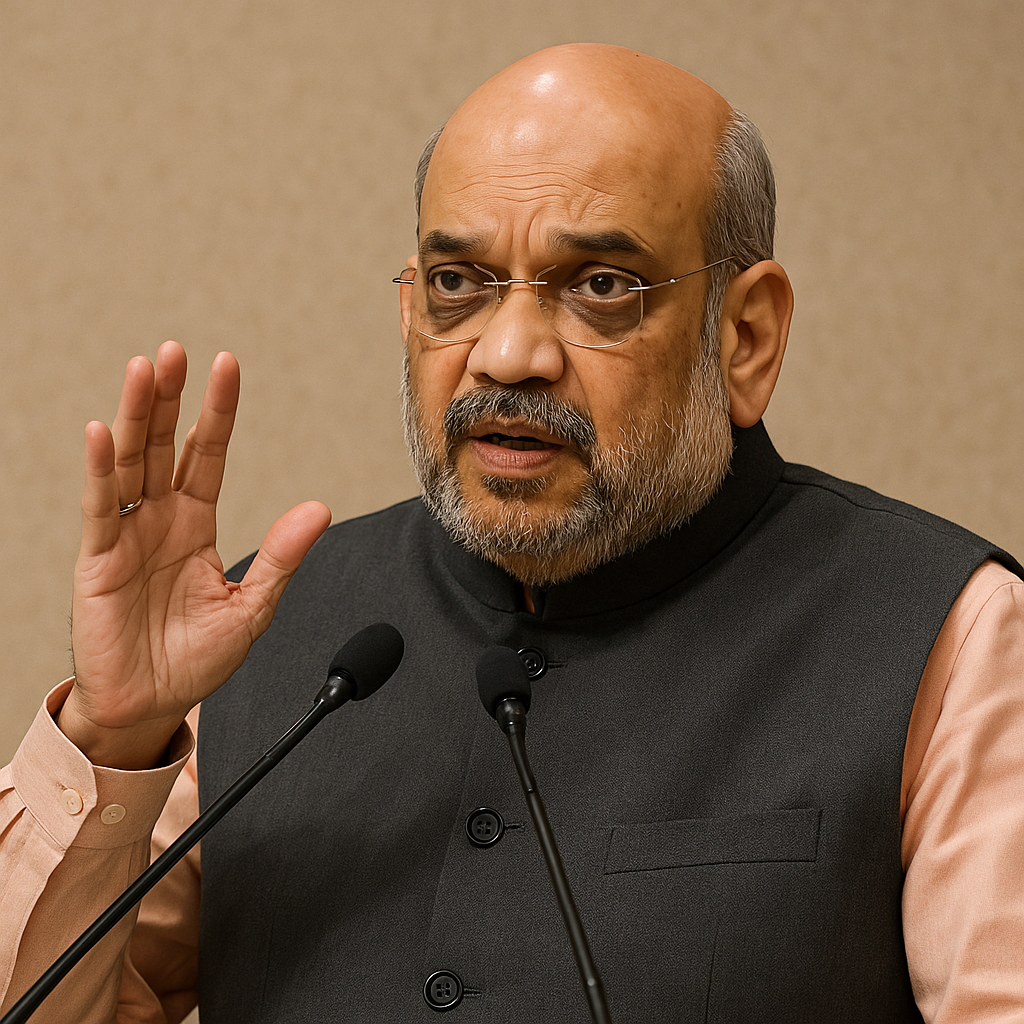Amit Shah Unveils Roadmap for Circular, Sustainable Dairy Cooperatives in India
Addressing the gathering, Shri Amit Shah emphasized that the government’s aim is not merely to expand dairy cooperatives, but to transform them into dynamic and efficient ecosystems that support sustainability.

- Country:
- India
In a major push to revolutionize India’s cooperative dairy sector, Union Home Minister and Minister of Cooperation Shri Amit Shah chaired a pivotal meeting in New Delhi today to chart the way forward for sustainability and circularity in rural dairy ecosystems. The high-level discussion, attended by senior government officials and heads of key cooperative institutions, underscored the government's commitment to empowering farmers and enhancing rural livelihoods through cooperative reforms.
Senior Leadership Joins Forces for Dairy Sector Revamp
The meeting witnessed participation from key stakeholders including Union Minister of State for Cooperation Shri Krishan Pal Gurjar, Shri Murlidhar Mohol, Secretary of the Ministry of Cooperation Dr. Ashish Kumar Bhutani, Secretary of the Department of Animal Husbandry and Dairying Smt. Alka Upadhyaya, NDDB Chairman Dr. Meenesh Shah, and NABARD Chairman Shri Shaji KV. Their collective presence signaled the strategic importance of the initiative in driving a second White Revolution in India.
Establishment of Three New Multi-State Cooperative Societies
Shri Amit Shah announced the establishment of three new multi-state cooperative societies to promote sustainability and circular practices in the dairy industry:
-
Animal Health and Feed Society – This cooperative will focus on the integrated development of animal feed production, disease control, and artificial insemination services to improve livestock productivity.
-
Cow Dung Management Society – This body will spearhead the development and dissemination of models for effective cow dung utilization, promoting composting, bio-fertilizer production, and biogas generation.
-
Cattle Remains Circular Economy Society – This innovative cooperative will address the environmentally responsible management of deceased livestock, encouraging value-added reuse through scientific methods.
Vision for White Revolution 2.0: From Sustainability to Circularity
Addressing the gathering, Shri Amit Shah emphasized that the government’s aim is not merely to expand dairy cooperatives, but to transform them into dynamic and efficient ecosystems that support sustainability. "If we truly want to increase farmers’ incomes, we need to integrate and empower our cooperatives. From technical services and animal healthcare to feed, dung, and carcass management, every aspect must be part of a circular economy," he asserted.
He called for a shift from linear models to regenerative frameworks that recycle resources, reduce waste, and maximize income streams for rural households.
Farmers at the Heart of Carbon Credit Benefits
Shri Shah highlighted that scientific models must be deployed to ensure carbon credit benefits directly reach farmers. He stressed the importance of strengthening milk unions and primary cooperative societies and enhancing food processing infrastructure within dairy plants to capture more value across the supply chain.
Empowering Women and Strengthening Rural Economies
The Minister underlined the indispensable role of dairy cooperative societies in uplifting rural India. These societies provide not only stable markets and veterinary care but also avenues for credit, breeding services, and increased female participation. "Through Sahkar Se Samriddhi, we are laying the foundation for inclusive rural prosperity," he said.
Amul as a Model and the Way Ahead
Shri Shah referenced Amul as a beacon of cooperative success and reaffirmed that this model would be replicated and adapted nationwide. He lauded the "Cooperation among Cooperatives" concept, where collaboration between cooperative entities leads to shared growth and sustainability.
Efforts are underway to transform single-purpose village cooperatives into multi-purpose entities, bringing them under the policy and financial umbrella of ministries and institutions such as the Ministry of Fisheries, Animal Husbandry and Dairying, NDDB, NABARD, and NCDC. This unified ecosystem will fast-track development while retaining grassroots control.
Biogas and Cow Dung Management: NDDB’s Breakthroughs
Shri Shah praised the National Dairy Development Board’s (NDDB) pioneering work in sustainability, particularly in biogas and cow dung utilization technologies. These programs are already being scaled nationally and will play a critical role in building climate-resilient rural infrastructure.
A Collective Drive Toward a Developed India
Asserting that the dream of a developed India as envisioned by Prime Minister Shri Narendra Modi is within reach, Shri Amit Shah said that integrated and cooperative-led rural development is key. He assured that with institutional support, policy backing, and farmer-led execution, the dairy sector will emerge as a cornerstone of India’s socio-economic progress.
This transformative agenda, combining sustainability, circularity, and grassroots empowerment, reflects a clear strategic shift in India’s rural development narrative. With the creation of new cooperatives and strengthened institutional synergies, the nation is poised for a second White Revolution—this time, green, circular, and inclusive.
- READ MORE ON:
- cooperative dairy sector
- Amit Shah
- sustainability
- circular economy
- Sahkar Se Samriddhi
- NDDB
- NABARD
- animal husbandry
- rural development
- India dairy sector
- White Revolution 2.0
- cow dung management
- carbon credits for farmers
- cooperative societies
- Ministry of Cooperation
- Amul model
- farmer empowerment
- biogas
- rural livelihoods
- multipurpose cooperatives










